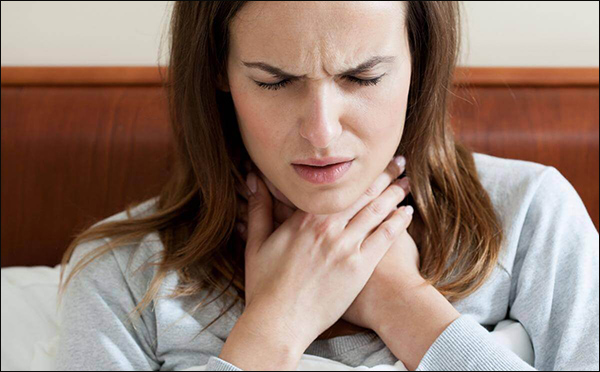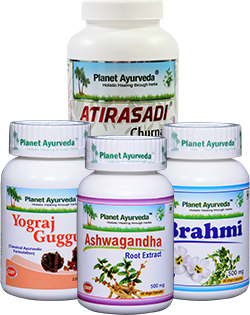Psoriasis and Its Ayurvedic Treatment with Herbal Remedies
Abstract
Skin serves to maintain and protect our body from the external environment. It regulates body temperature, reduces the harmful impact of UV rays, and acts as a sensory organ. Skin holds everything together. Without skin people’s muscles, bones, and organs would be hanging out all over the place. Now you would have known how important the skin is and more important keeping skin healthy. Beautiful and healthy skin boosts your confidence. But what if it gets trapped in diseases? Psoriasis is one such pruritic (irritating) disease. According to WHO reports the prevalence of the disease has increased often and can occur at any age, even in children. Psoriasis not only affects the person physically but also mentally and emotionally. Through this article, you will get to know the causes, symptoms, Ayurvedic aspects of Psoriasis, and how it is treatable with Ayurvedic medicines.

Introduction
Psoriasis is an immune-mediated inflammatory skin disease that leads to the rapid build-up of skin cells causing scaling. Typically over 24 hours, our body shed almost a million skin cells, which are replaced after about a month. Psoriasis occurs when skin cells are replaced more quickly than usual, within 3 to 4 days. It is caused by a problem in the immune system. The scales appear most commonly on knee joints, elbows, scalp, and trunk. However, scales may develop anywhere on the body including hands, feet, neck, scalp, face, and less commonly on nails, mouth, and around genitals. Typical psoriatic scales are thick, red patches covered with silvery-white plaques and tend to have a symmetric distribution. But they can differ according to severity and type of Psoriasis. These patches can crack and bleed on scratching and hence can be very painful. According to IPC (International Psoriasis Council), there are 5 types of Psoriasis-
- Chronic Psoriasis Plaque
- Psoriasis Guttate
- Psoriasis Pustular
- Psoriasis Erythrodermic
- Psoriasis Nail
Health conditions vary from normal to worse regarding the type of psoriasis the patient is suffering from. Autoimmune response leads to inflammation of the skin which can also have an immense impact on other organs of the body. Thus, it needs to be controlled as early as possible.
The Ayurvedic Aspect Of Psoriasis
![]()
As per the ayurvedic concept, psoriasis is known as ‘kitibha’ which are harsh skin patches, scabrous to touch (covered with something rough). Kitibha is classified under ‘kshudra kushtha’. It occurs due to unbalanced tridosha predominantly the Vata dosha and Kapha doshas. Furthermore, the acharyas have explained ‘mandal kushtha’ as a cluster of elevated skin patches which are adjacent to each other (connected according to the progress of the disease). They are red-colored patches with dry skin plaques same as psoriasis plaques. Mandal kushtha is classified under ‘maha kushtha’. Psoriasis can simply be termed as kushtha according to Ayurveda. Psoriasis in Ayurveda is managed by pacifying tridosha with herbal medicines described in detail further in the article.
Symptoms
The symptoms of the disease are the same in modern pathy as written in Ayurveda texts. The affected area can be small (in the beginning) or cover the majority of the body area (in severe cases). Following listed are the most found symptoms in psoriasis patients-
- Thick areas of discolored skin (can be adjacent to each other)
- Skin patches covered with white-silvery scales
- Skin harsh to touch
- Itchy skin
- Burning skin/skin pain
- Pitted, cracked nails
- Painful and swollen joints
- Dry skin may crack and bleed (on scratching)
Not every person will experience all these symptoms. The symptoms vary according to the severity of the disease which is assessed by the degree of scaling, redness, thickness, and size of skin lesions.
Causes
- Immune System – Psoriasis is an autoimmune condition as a result of which the body attacks itself. In Psoriasis T-cells attack the body’s skin cells. An overactive immune response causes skin cells to produce new skin cells that develop too quickly. The attack on the skin cells also causes redness and swelling of the skin.
- Genetics – National psoriasis foundation considers genetics to be a causative factor for psoriasis.
In addition to the above causes, some more causative factors in Ayurveda are mentioned as-

- Virudh Aahar [eg- (drinking milk with fish/salt/yogurt), (eating cold with hot simultaneously)
- Overeating, even on indigestion
- Suppress natural urges (eg-control urge to urine)
- Workout after heavy meals
- Daytime sleep
These unhealthy food habits and inadequate lifestyle practices only if done on a regular basis will tend to elevate doshas and cause ‘kushtha’ disease which is simply psoriasis.
Diagnosis
The doctor can make a diagnosis directly through Physical examination. No lab test is required but sometimes a doctor can suggest a Skin Biopsy to determine the type of psoriasis and to rule out any skin infection along with it.
In Ayurveda, three main diagnostic factors together make diagnosis better, including- Darshan= by observing the patches and patient, Sparshan= by touching the affected areas, and Prashan= by asking and ruling out Prakriti of the person and taking personal and family history. The better the diagnosis (type, prakriti, and degree of psoriasis), the better will be the treatment.
Complications
The person with Psoriasis may also experience several other health conditions explained in modern and Ayurveda, including- diabetes mellitus (madhumeh), inflammatory bowel disease (dah, atisar), heart disease (hridya rog), psoriatic arthritis (angbhed in 20% patients), anxiety and depression (manh and sharir dorbalya).
Treatment
In modern pathy treatment, there are few medications (steroids) that help to reduce symptoms of psoriasis. Topical corticosteroids, oral steroids, and light therapy are the line of treatment. Talking about their side effects, modern pathy itself claims that long-term steroid use can thin skin and over time they stop working. Light therapy can cause skin burns and make skin more itchy and inflamed. Most of these medications are unsafe during pregnancy. Moreover, few studies conclude that long-term use of steroids as well as light therapy can cause skin cancer. Unfortunately, people still depend on these medications and are unaware of the efficacy of ayurvedic medicines. Ayurveda provides natural treatment to these patients without any side effects.
Ayurvedic chikitsa (treatment)
When patients reach out to our doctors, they treat the patient by working on various protocols including lifestyle changes, special diet plans, and taking herbal medicines altogether.
- Nidan parivarjan – The very obvious treatment protocol says, by avoiding causative factors mentioned earlier in the article can help the body to recover better. These include both eating habits and lifestyle habits.
- Pathya-apathya – Any ayurvedic treatment process is incomplete without this step. Your ayurvedic doctor will instruct you on what to eat according to the disease condition and herbal medications you are taking.
Herbal Medications For Psoriasis by Planet Ayurveda
Ayurveda medicines are very beneficial in the treatment of psoriasis. Planet Ayurveda is a leading manufacturing company of various herbal medications with the best overall result for 20 years. Their products are 100% pure and vegetarian and are made from standardized extracts of various potential medicinal plants by expert ayurvedic physicians. This company is internationally certified and people worldwide are using its products and medicines. They strictly follow government guidelines for making their products the best. Planet Ayurveda provides a ‘Psora Care Pack’ to treat psoriasis. It is the best remedy to ease the symptoms of psoriasis with no side effects. Here are the further details about the working and efficacy of the product-
Products List
- Navkarshik Churna
- Gleaming Skin, Hair, Nails Formula
- Neem Capsules
- Manjishtha Capsules
- Pitta Balance
- Gandhak Rasayan
- Recumin Gel
- Jatyadi Tailam
Products Description
1. Navkarshik Churna
It is a herbal ayurvedic formulation in powder form. It is a combination of natural herbs such as – Amla (Emblica officinalis), Haritki (Terminalia chebula), Bibhitki (Terminalia bellerica), Vacha (Acorus calamus), Neem (Azadirachta indica), etc. It helps in cleaning the blood that keeps the skin healthy and eases symptoms of the disease.
Dosage: 1 tablespoon full twice a day with lukewarm water after meals.
2. Gleaming Skin, Hair, Nails Formula
This wonderful acting ayurvedic formulation contains Manjistha (Rubia cordifolia), Pit papad (Fumaria officinalis), Chirayata (Swertia chirata), Ghritkumari (Aloe barbadensis). This formulation capsule very effectively balances tridosha. Also supports the healthy pH of the skin which maintains skin health and treats skin disorders like psoriasis.
Dosage: 2 capsules twice a day after meals, with lukewarm water.
3. Neem Capsules
These capsules are made up of natural extracts of a single herb, Neem (Azadirachta indica). This herb is used in several skin conditions due to its anti-bacterial, and anti-fungal properties. It cleans the blood and skin which reduces the chances of skin infections which are high in case of deep and cracking psoriasis plaques.
Dosage: 1 capsule twice a day after meals, with lukewarm water.
4. Manjishtha Capsules
It is an ayurvedic formulation that contains a standardized extract of Manjistha (Rubia cordifolia). It controls over activation of the immune system which eases rapid skin production. Therefore, it is beneficial in managing psoriasis.
Dosage: 2 capsules twice daily after meals, with lukewarm water.
5. Pitta Balance
It is a polyherbal formulation prepared from JaharMohara (natural calcium compound), Kharava pishti (natural calcium compound), Akik, Mukta, Giloy satv (Tinospora cordifolia). This formulation helps to balance pitta dosha which ultimately balances tridosha. It regulates Agni and treats burning sensation in the skin and is advantageous in kushth rog.
Dosage: 1 capsule twice daily after meals, with lukewarm water.
6. Gandhak Rasayan
Shudh gandhak (purified sulfur) is used to prepare gandhak rasayan. Gandhak being a rasayan has rejuvenating properties which promote health and nourishes the body from the inside out. Its anti-inflammatory properties help to reduce swelling and pain in affected areas of the skin and its antibacterial properties reduce the chances of skin infections.
Dosage: 2 tablets twice a day after meals, with lukewarm water.
7. Recumin Gel
This patent herbal formulation manufactured by planet Ayurveda consists of herbs such as Haldi (Curcuma longa), Jasmine (Jasminum officinale), Neem (Azadirachta indica), etc. Its active ingredients maintain skin health when applied to bare skin and also subside the symptoms of various skin diseases. This is very effective in managing dry skin plaques in psoriasis patients.
Directions: Apply externally on affected skin areas twice daily after cleaning the area.
8. Jatyadi Tailam
This is a polyherbal ayurvedic formulation and contains various beneficial ayurvedic herbs such as Chameli (Jasmine officinale), Neem (Azadirachta indica), etc. Jatyadi tailam pacifies Vata dosha’s aggravation. Application of tailam on the affected area will improve the skin condition and ease symptoms of itching, swelling, pain, and irritation.
Directions: Apply externally on the patches/affected skin areas once or twice daily after cleaning the area.
Conclusion
Psoriasis is a long-term condition that hinders the quality of life. It requires side-effect-free effective management for better health status. These requirements can be fulfilled with the use of an ayurvedic ‘Psora Care Pack’. These herbs are efficient in maintaining psoriasis. Furthermore, these herbs also enhance skin luster and overall robustness. Our talented Ayurvedic doctors are constantly working on the management of such diseases and have been successful to a large extent. The efforts provide relief to the patients without any side effects. For a better ayurvedic experience or any queries contact us at www.PlanetAyurveda.com





